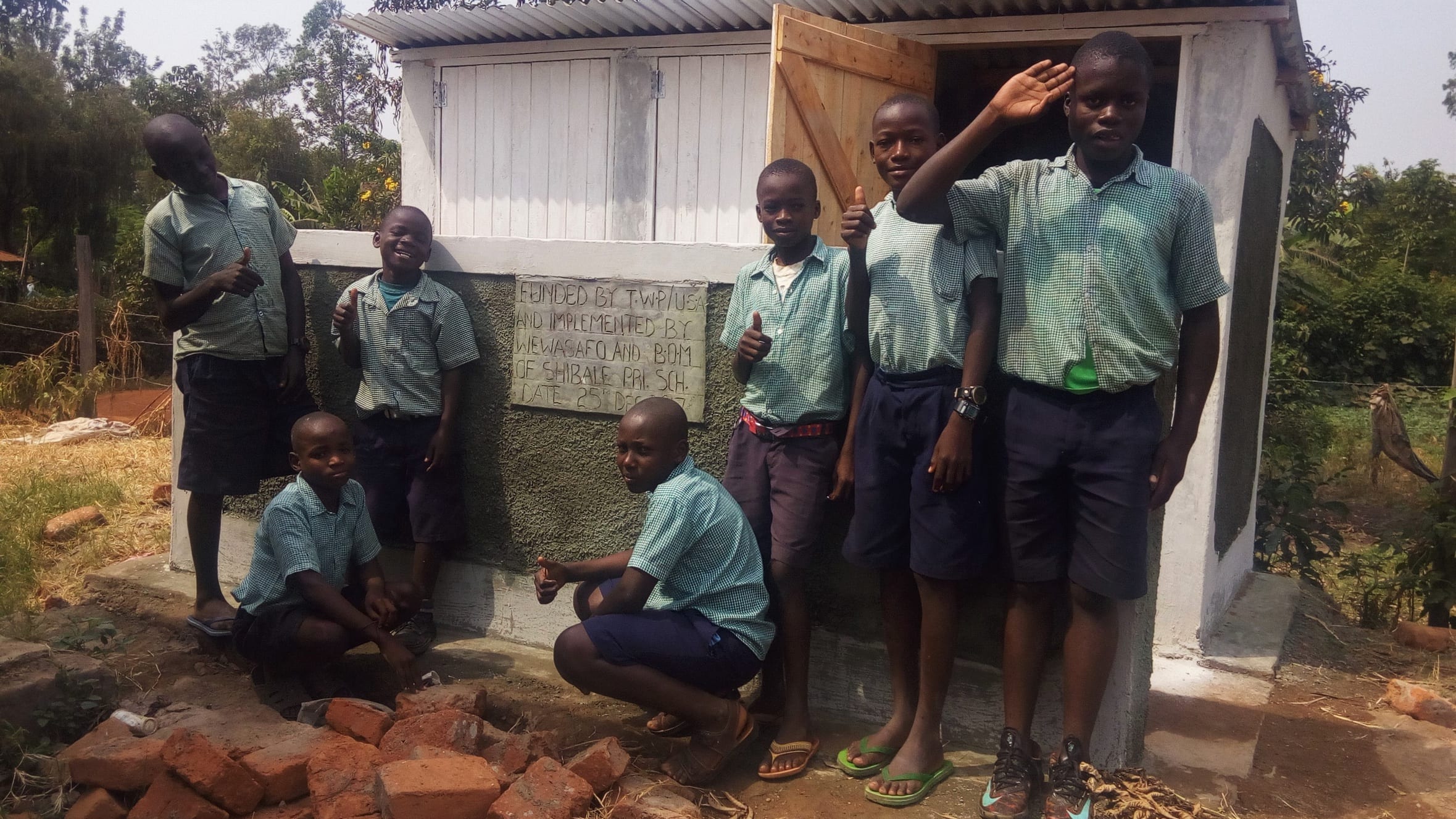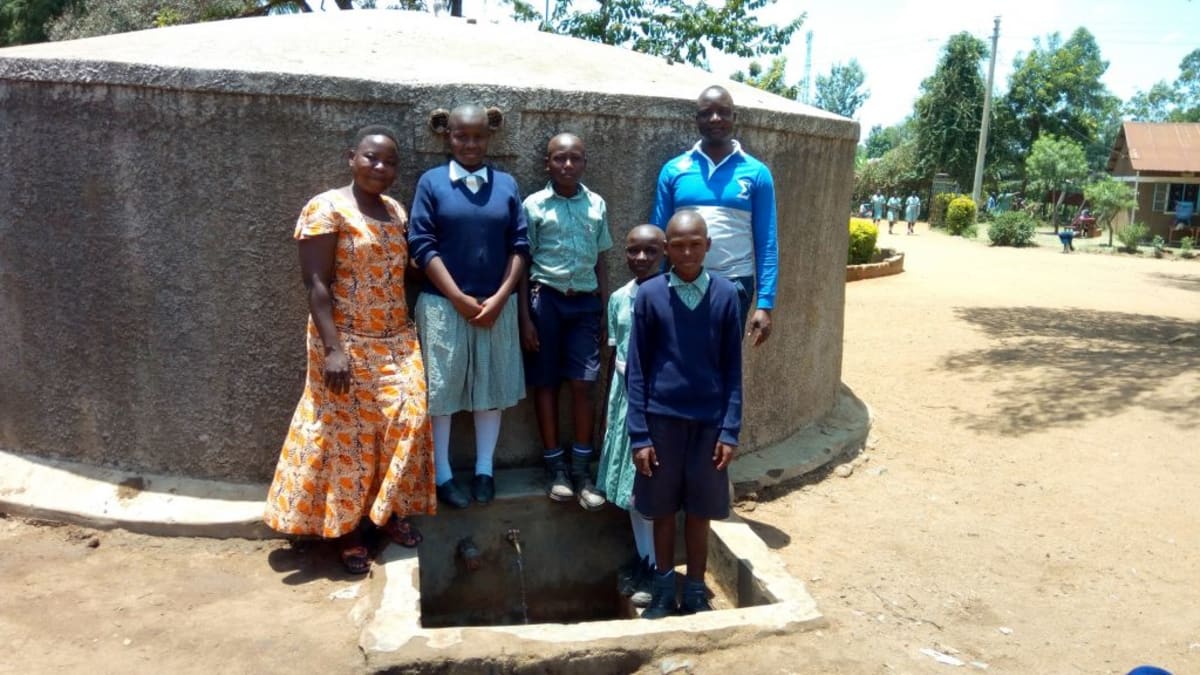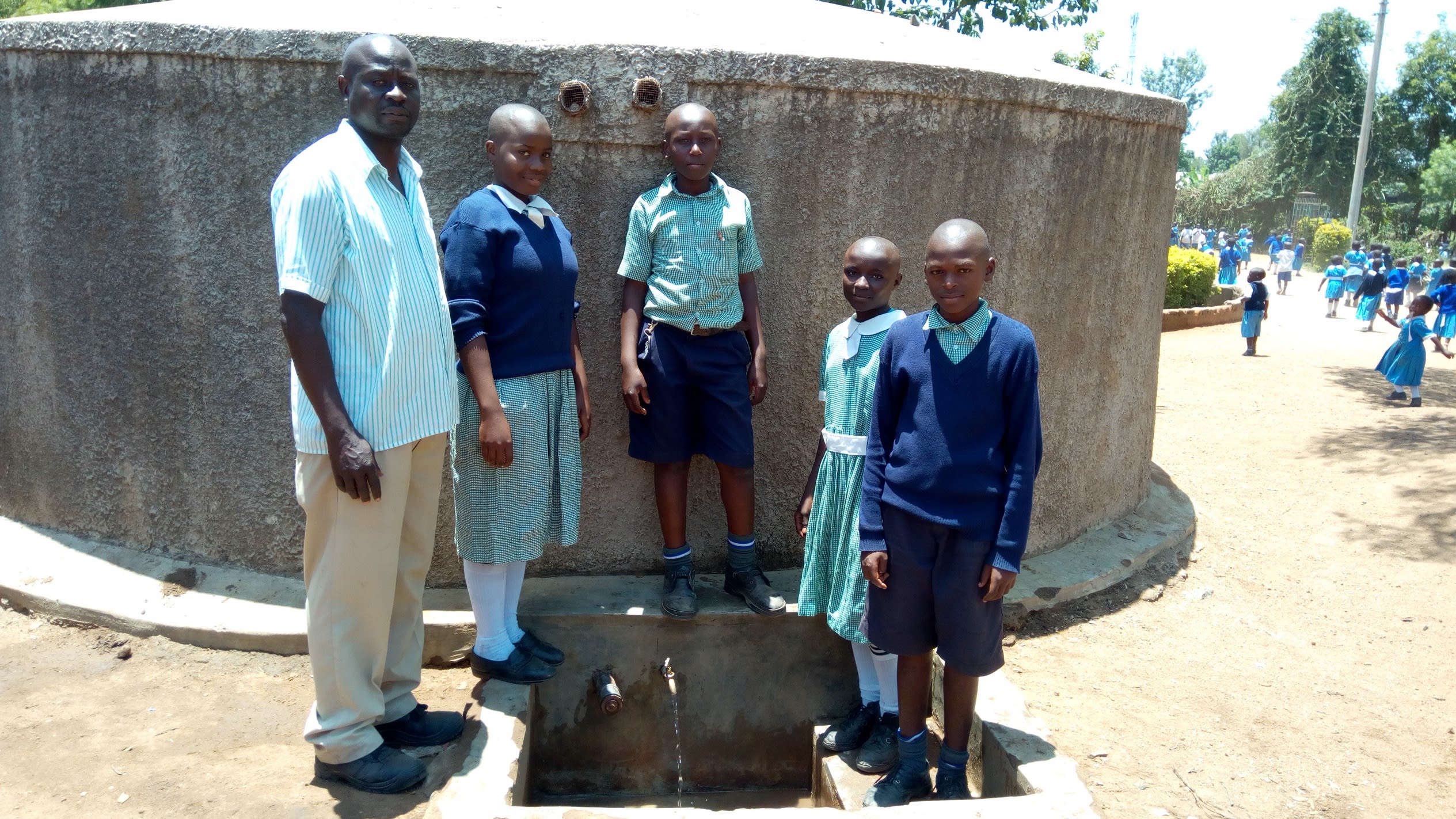This project is a part of our shared program with Western Water And Sanitation Forum (WEWASAFO). Our team is pleased to directly share the below report (edited for clarity, as needed).
This project was previously scheduled to be done at St. Vincent Hirumbi, but the school asked to be reconsidered for a project next year.
Welcome to the School
Shibale Primary School was started in 1988, and has grown to have a huge enrollment of 864 students who are taught by 19 teachers. The school also employs two support staff. (Editor's Note: While this many people may have access on any given day, realistically a single water source can only support a population of 350-500 people. This community would be a good candidate for a second project in the future so adequate water is available. To learn more, click here.)
A normal day begins at 6am as students leave home for school. Lower classes are required to be there by 7am to clean up the school compound. On Mondays and Fridays there is a morning assembly whereat the flag is raised. The teacher on duty addresses the pupils and invites other teachers to brief the pupils on what is expected of them. Normal classes begin at 8am and go until 4:30pm. At 4:30pm, students must stay for either sports or another club of interest. There are those who are good at poem recitation, drama, football and many other things, but everyone should participate in an activity. At 5pm they all assemble again and are then dismissed to return home and help their parents with chores.
Most people who live in this area are traders who wake up very early in the morning to man their stalls.
Water Situation
Shibale Primary is connected to a tap water system, but it is extremely unreliable. They are lucky to find water in the pipes for two days a week. When the tap is running, the school tries to store as much as possible. The parents pooled together their resources to buy the school a 2,500-liter plastic tank which serves as the primary storage tank. Unfortunately, 2,500 liters of water is not nearly enough for the majority of the week, and the school finds themselves at a deficit.
Students are then sent on in search of water. One of the most popular sources is an open hole in the ground. A bucket is tied to a rope and lowered down to bring up water. This is particularly dangerous and difficult work for small children, as they risk falling in and drowning. However, this hole does not provide water during the driest months of the year.
Students are spending precious study time in search of water; water for drinking, cooking lunch, and cleaning.
Sanitation Situation
The school faces a lot of challenges when it comes to sanitation. The school had 10 pit latrines, but four of those are destroyed and no longer in use. Two of the remaining six are set aside for teachers. That leaves only four latrines for 864 students.
The students spend a ridiculous amount of time during break and cutting into class time lined up waiting at the latrines. Many of these small children can't bear the wait and instead look for privacy behind the classroom buildings.
And after our visit to the school, we received notice that the Ministry of Health closed down the rest of the latrines and soon after shut the school down. At this moment, only grade eight students are allowed inside to finish their national exams. If nothing is done, this school will not open again in 2018.
Plans: Hygiene and Sanitation Training and Hand-Washing Stations
Training will be held for two days. The facilitator will use PHAST (participatory hygiene and sanitation transformation), ABCD (asset-based community development), CTC (child to child), lectures, group discussions, and handouts to teach health topics and ways to promote good practices within the school. The CTC method will prepare students to lead other students into healthy habits, as well as kickstart a CTC club for the school. This CTC club will oversee the new facilities, such as hand-washing stations, and make sure they are kept clean and in working condition. The two hand-washing stations will be delivered to the school, and the club will fill them with water on a daily basis and make sure there is always a cleaning agent such as soap or ash.
Plans: VIP Latrines
Two triple-door latrines will be constructed with local materials that the school will help gather. Three doors will serve the girls while the other three serve the boys. And with a new source of water on school grounds, students and staff should have enough to keep these new latrines clean.
Plans: Rainwater Catchment Tank
A 50,000-liter rainwater catchment tank will help alleviate the water crisis at this school. The school will also help gather the needed materials such as sand, rocks, and water from the spring for mixing cement (students have already started helping). Once finished, this tank can begin catching rainfall that will be used by the school’s students and staff. Students will no longer have to leave school in search of water.
We and the school strongly believe that with this assistance, standards will significantly improve. These higher standards will translate to better academic performance!

 Rainwater Catchment
Rainwater Catchment
 Rehabilitation Project
Rehabilitation Project

































